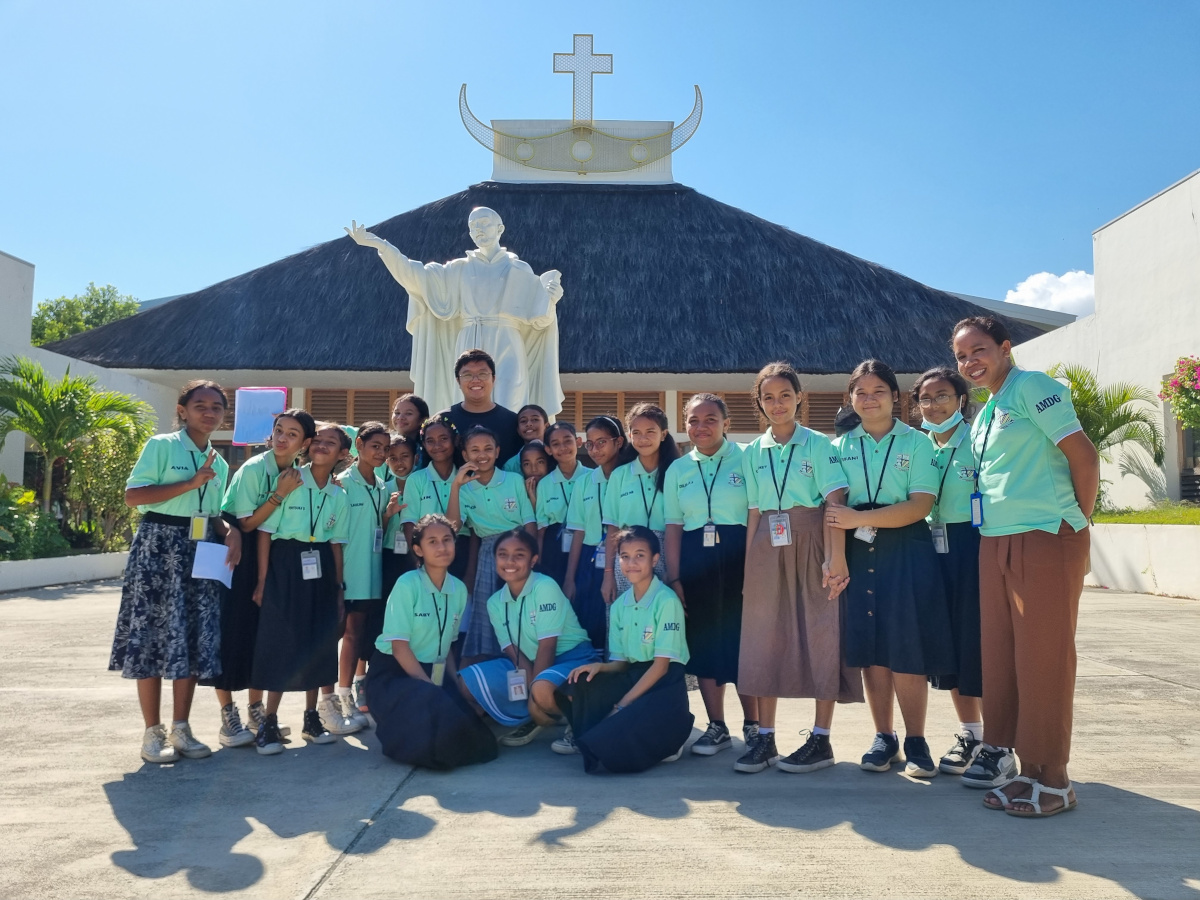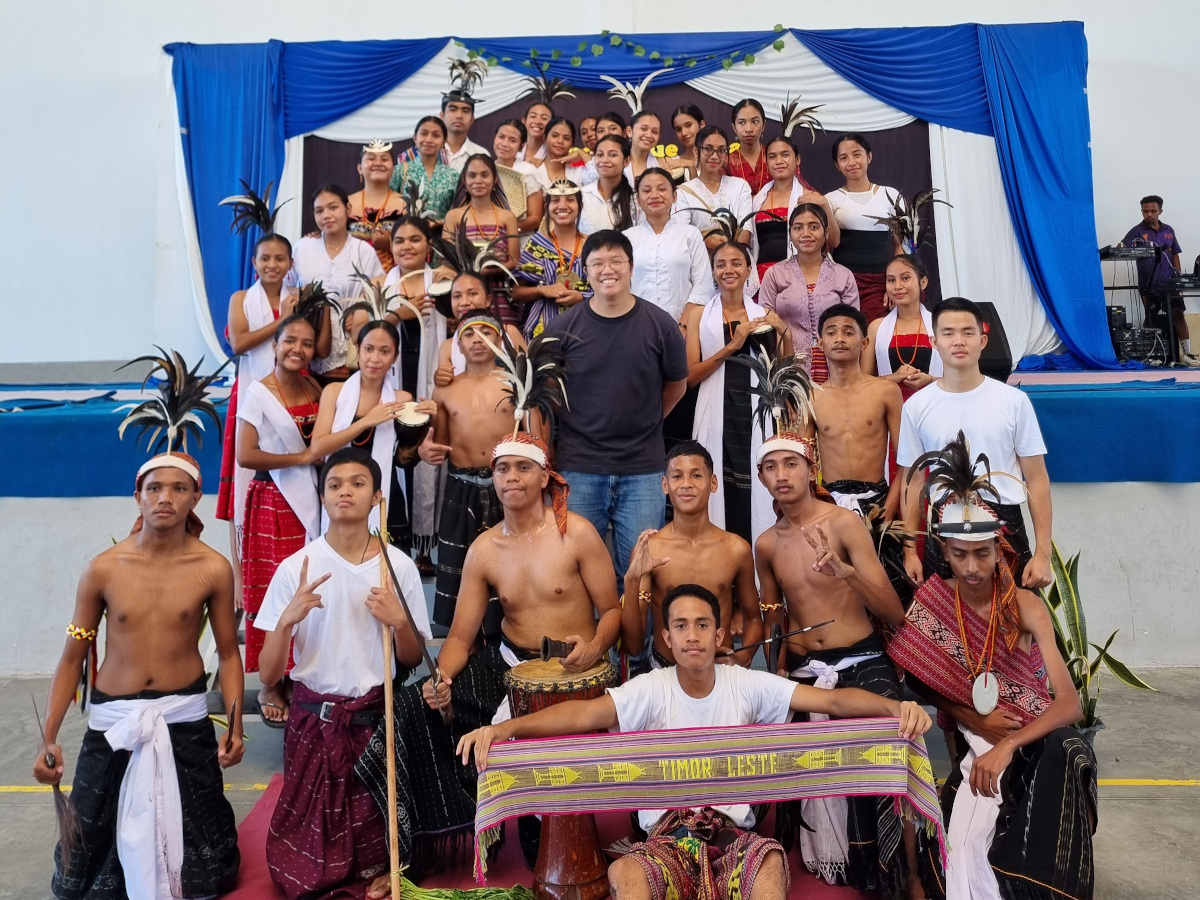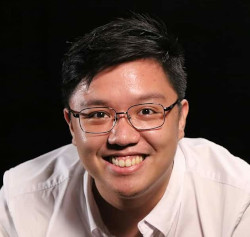 A few kilometres outside Dili stands Colegio de Santo Ignacio de Loiola (CSIL), the secondary school run by the Jesuits in Timor-Leste. I was privileged to be sent there for my intersession apostolate and exposure. I went to teach English, but I ended up learning so much about the joys and challenges of running a Jesuit school in a very young country.
A few kilometres outside Dili stands Colegio de Santo Ignacio de Loiola (CSIL), the secondary school run by the Jesuits in Timor-Leste. I was privileged to be sent there for my intersession apostolate and exposure. I went to teach English, but I ended up learning so much about the joys and challenges of running a Jesuit school in a very young country.
CSIL plays a pivotal role in the future of the nation. Timor-Leste is Asia’s youngest state and one of the poorest. In 2006, the country suffered a military crisis that brought it back to the brink of instability and bloodshed. The response of the Church and the Society of Jesus was education.
Fr Isaias Caldas SJ is in his third year as the school’s director. He was a scholastic when CSIL started 10 years ago. He spent his Regency helping set up the school, and part of his task was to drive through the neighbouring villages to announce the opening of a Jesuit school a few kilometres away. He recalled how CSIL opened without the luxury of proper classrooms, as most of the physical infrastructure was still under construction. “We knew we were doing God’s will, but we didn’t know where to get the funding for a fully functional building. We didn’t even know where the students would come from!” he said.
Those early years now seem distant, as CSIL has flourished to become one of the premier schools in Timor-Leste, not only in terms of infrastructure and facilities but also in the quality of education it offers. The campus now comprises six wings of classrooms from Grade 7 to Grade 12, laboratories, spacious faculty rooms, offices, an administrative wing, a cafeteria, a track oval, a covered court that can accommodate 1,000 individuals, and a beautiful chapel right at the centre of the school. From around 30 pupils during its first year, CSIL has grown to approximately 800 students.
 “When I look back, I am amazed at how much CSIL has developed and transformed. It was truly God’s hand at work. God sent us friends to help!” said Fr Caldas, grateful for the support of many benefactors, including the Jesuit Conference of Asia Pacific, the Australian, Malaysia-Singapore, Japanese, and Philippine Provinces, and Jesuit Mission Australia.
“When I look back, I am amazed at how much CSIL has developed and transformed. It was truly God’s hand at work. God sent us friends to help!” said Fr Caldas, grateful for the support of many benefactors, including the Jesuit Conference of Asia Pacific, the Australian, Malaysia-Singapore, Japanese, and Philippine Provinces, and Jesuit Mission Australia.
Despite the progress, the school’s greatest challenge remains securing adequate funding. Tuition fees alone cannot sustain the school’s operations at their current level. CSIL relies on subsidies from the Society of Jesus in Timor-Leste, Australia, and the Jesuit Conference of Asia Pacific to augment their teachers’ salaries. Still, they have lost some of their teachers to government institutions, particularly as English translators, because of higher pay.
The school’s decision to refrain from raising tuition fees is a conscious choice to open the doors to as many Timorese students as possible, regardless of their financial standing.

“If we increase tuition fees, we can give our teachers higher salaries and maybe guarantee that they will stay with CSIL, but we fear that only the rich families will be able to send their children to CSIL. That is not our intent. We do not want it to be a school known for accepting only those who have money to pay,” explained Fr Caldas.
Currently, up to 30 percent of CSIL’s students benefit from full scholarships and allowances. “We do this to make sure that CSIL will be a school for all. Rich or poor, everyone is given a chance,” said Fr Ura Yoshitaka SJ, CSIL’s administrative officer and treasurer.
CSIL is among the emerging schools in Timor-Leste. According to Fr Ura, many Australian, Portuguese, and Filipino teachers who settled in Dili established their own international schools, offering excellent curricula. However, the Jesuit school extends much more than a good quality education.
“The Colegio is not just an ordinary school producing smart and intelligent students, but our hope is that this school makes them better Christians – to be truly men and women for others, with the spirit of magis!”
Anyone familiar with Jesuit education will understand what Fr Ura said. CSIL is not an isolated educational enterprise on the small island of Timor-Leste; rather, it is part of the wider Jesuit global network of schools. CSIL fits within the Society’s storied history of educating the youth, harking back to the early years when Ignatius of Loyola and the founding Fathers established our first school for young boys in Rome around 500 years ago.
For Fr Caldas, though, it is not about having the best school but about forming students with character. “If it turns out to be one of the better schools in Timor-Leste, we thank the Lord for that,” he said. “What CSIL needs to be is a school that can form the hearts and souls of young children – children whose history has suffered so much. Some of our students are the first high school students in their whole clan! We hope that CSIL will give them the mind and the eyes to see their education as a gift but also as a responsibility for them to help others, to help our country grow. We hope that our school will produce the hope our country needs. Our hope is our students.”
CSIL’s bustling hallways filled with students running and its humid classrooms ringing with the laughter and sound of students speaking in Tetum and Portuguese certainly painted for me a vision of hope.
 Once, I shared with them how I was taught by my teachers at Ateneo de Manila to become light amidst darkness. Often, people see light as an overpowering presence, a kind of prestige – a limelight. But “Lux in Domino“, the school’s motto, stands in stark contrast to that. I told them that to be light is to light the paths of other people, to bring illumination to the lives of others, and more importantly, to share this light so that others too can be lux in Domino or light in the Lord.
Once, I shared with them how I was taught by my teachers at Ateneo de Manila to become light amidst darkness. Often, people see light as an overpowering presence, a kind of prestige – a limelight. But “Lux in Domino“, the school’s motto, stands in stark contrast to that. I told them that to be light is to light the paths of other people, to bring illumination to the lives of others, and more importantly, to share this light so that others too can be lux in Domino or light in the Lord.
Later, one of the Grade 12 students approached me seeking clarification on how he could become “light in the Lord”. I was taken aback by the question’s depth and sheer simplicity. Without overthinking my response, I told him to study well and use his skills and knowledge to uplift his fellow Timorese in the future, regardless of his chosen career or occupation. I sensed his contentment as he walked away with a smile.
My two weeks with CSIL passed swiftly. Before I returned home, Fr Caldas brought me to the Ruins of Ai Pelo Prison, built in 1889 as a Portuguese colonial prison until 1935. There, we met one of the caretakers, Pedro Suares, a former guerilla who had fought for Timor-Leste’s independence. He showed us his bullet scars from the revolution against Indonesia, during which he was incarcerated and tortured for two and a half years. On one occasion, while enduring a beating from his tormentors, he looked at them and said, “You can break my body. You can bleed me. You can kill me. But I say to you: Timor-Leste will one day be free!” In 2002, Timor-Leste officially achieved independence.
“Mr Suares,” I addressed him, “East Timor is now free! What you fought for is already here.”
“Yes, but we need to educate the youth for us to be truly free!”
I looked at Fr Caldas and playfully remarked, “That’s your work now!”
“Yes,” he nodded, “a big work indeed!”
 Bien Emmanuel C Cruz SJ is a Filipino scholastic studying theology at the Loyola School of Theology in Manila. He lives with his brother Jesuits at the Loyola House of Studies.
Bien Emmanuel C Cruz SJ is a Filipino scholastic studying theology at the Loyola School of Theology in Manila. He lives with his brother Jesuits at the Loyola House of Studies.

